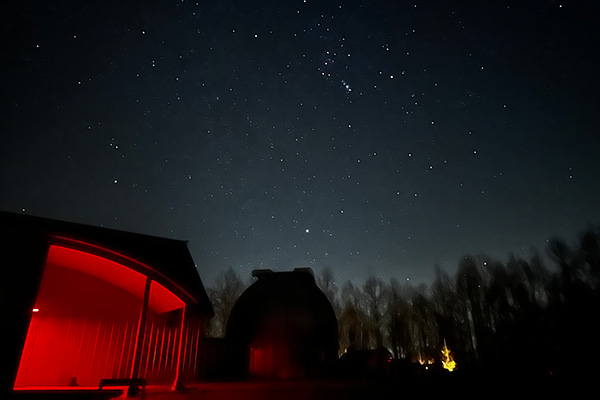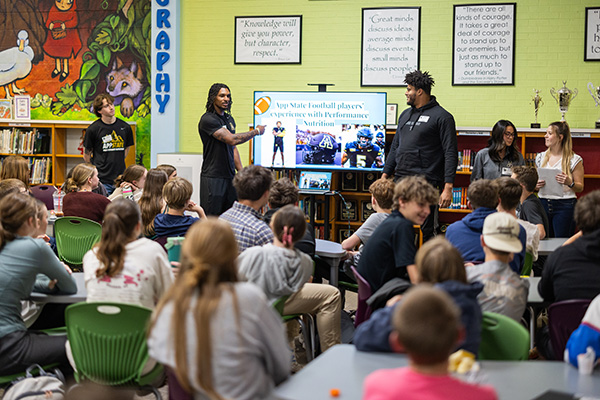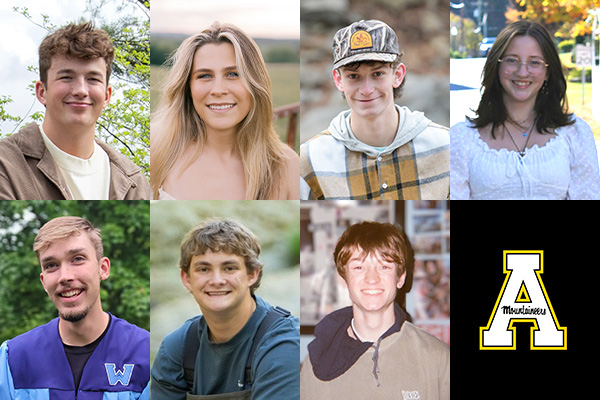BOONE, N.C. — An investigation of 2015–18 United States Border Patrol data performed by Appalachian State University senior Anna Biache, in collaboration with university faculty, indicates Latina women who were members of a family unit were almost three times more likely to be deported than Latino men in family units.
Biache, a sociology major from Alexandria, Virginia, traveled to El Paso, Texas, to present the preliminary findings of her research at the annual conference of the Association of Humanist Sociology (AHS), held Oct. 30–Nov. 2. The research was conducted in collaboration with Dr. Felicia Arriaga and Dr. Cameron Lippard, assistant professor and professor, respectively, in the Department of Sociology.
Through their research, which examines Latina deportation rates over a three-year period (2015–18), the team sought to determine if Latino women and men had different rates of expedited deportations based on whether they were a part of a family unit.
In their findings, Biache and her co-authors present several reasons for the differences in deportation rates, among them:
- U.S. presidential interpretations of federal immigration laws since the administration of President Dwight D. Eisenhower have led to a focus on Central American and Asian family units as key to curtailing increasing immigration rates from Central America. These presidential interpretations often increase or decrease the types of people targeted for border crossing violations (i.e., unauthorized entry into the U.S.), and since the administration of President Bill Clinton, much of the focus has been on curtailing border crossings for Latinas and their children.
- Latinas find themselves at a higher risk of deportation because they are more likely to interact with the American public than their male counterparts. For example, Latinas are often responsible for taking care of their family’s needs, such as enrolling children in school, taking family members to the doctor or doing the daily shopping. This frequent exposure to more public scrutiny has made it easier and more efficient for agents with Immigration and Customs Enforcement (ICE) and Customs and Border Protection (CBP) to police Latinas for being undocumented.
In contrast, Biache reported ICE and CBP often police Latino men within the contexts of border crossing and certain industries because it seems to be a more efficient way to apprehend individuals during a one-time intervention, such as the August ICE raids at food processing plants in Mississippi that resulted in the arrest of more than 650 undocumented workers.
The AHS conference was held at the border of El Paso, New Mexico, and Ciudad Juarez, Mexico, to give researchers and other conference attendees an opportunity to see the situation at the border firsthand.
Biache said she was grateful for the opportunity to experience a culture outside of her own and become more familiar with sociological concepts, research and work.
“The border between these two cities, and the U.S. and Mexico, is so fluid that most people do not differentiate between the two places — they are one community, with family, friends, workers and students on either side,” Biache said.
Of her conference experience, she said, “Despite the stigmatized idea that El Paso and (Ciudad) Juarez are dangerous areas saturated with drugs, violence and gangs, these two sister cities housed a kind and passionate community, proud to show our group nothing but warm welcomes.”
Biache plans to continue her deportation research with Arriaga and Lippard, which she said they hope to publish soon.
What do you think?
Share your feedback on this story.
About the Department of Sociology
The Department of Sociology offers a Bachelor of Arts and seven Bachelor of Science concentrations (applied research methods; criminology; families and intimate relationships; health and aging; power and social change; social inequalities; and individually designed, which requires departmental approval). The department also offers minors in sociology and health and aging, plus two online graduate certificates: aging, health and society, and sociology. Learn more at https://soc.appstate.edu.
About the College of Arts and Sciences
The College of Arts and Sciences (CAS) at Appalachian State University is home to 17 academic departments, two centers and one residential college. These units span the humanities and the social, mathematical and natural sciences. CAS aims to develop a distinctive identity built upon our university's strengths, traditions and locations. The college’s values lie not only in service to the university and local community, but through inspiring, training, educating and sustaining the development of its students as global citizens. More than 6,800 student majors are enrolled in the college. As the college is also largely responsible for implementing App State’s general education curriculum, it is heavily involved in the education of all students at the university, including those pursuing majors in other colleges. Learn more at https://cas.appstate.edu.
About Appalachian State University
As a premier public institution, Appalachian State University prepares students to lead purposeful lives. App State is one of 17 campuses in the University of North Carolina System, with a national reputation for innovative teaching and opening access to a high-quality, cost-effective education. The university enrolls more than 21,000 students, has a low student-to-faculty ratio and offers more than 150 undergraduate and 80 graduate majors at its Boone and Hickory campuses and through App State Online. Learn more at https://www.appstate.edu.
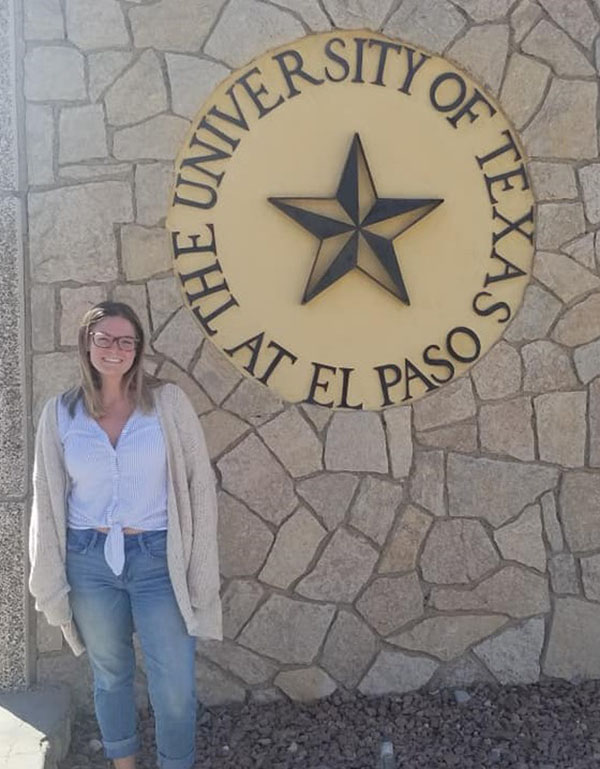
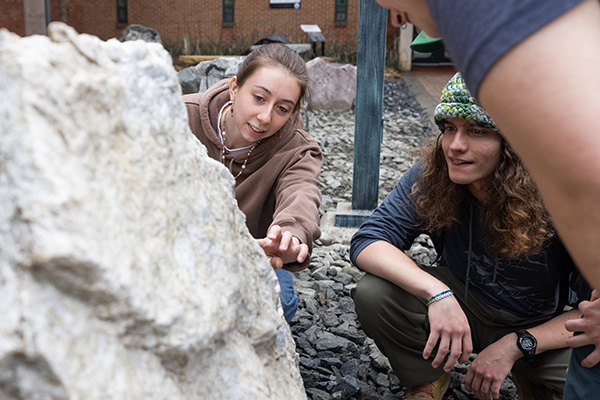
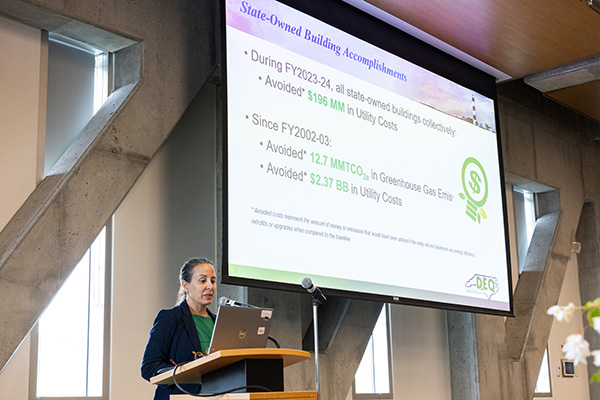
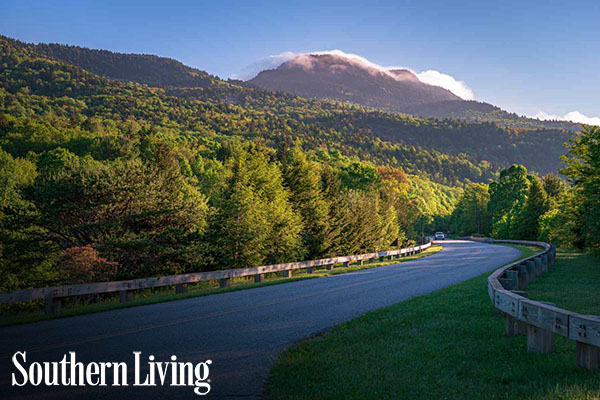
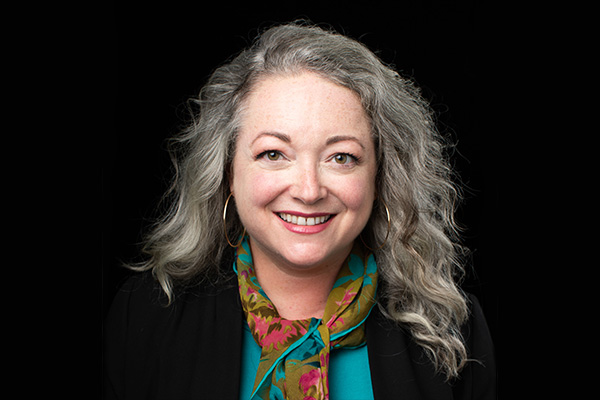

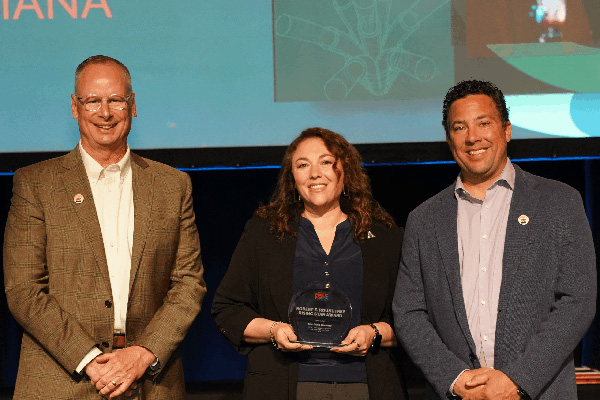
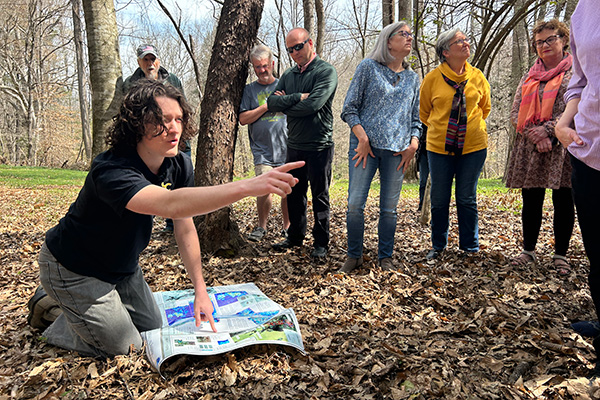
![‘Dragon prince’ dinosaur may be missing link in T. rex evolution [alumni featured]](/_images/_posts/2025/06/dragon-prince-600x400.jpg)
![Is Carb Cycling the Key to Increasing Your Endurance? [faculty featured]](/_images/_posts/2025/06/carb-cycling-600x400.jpg)
